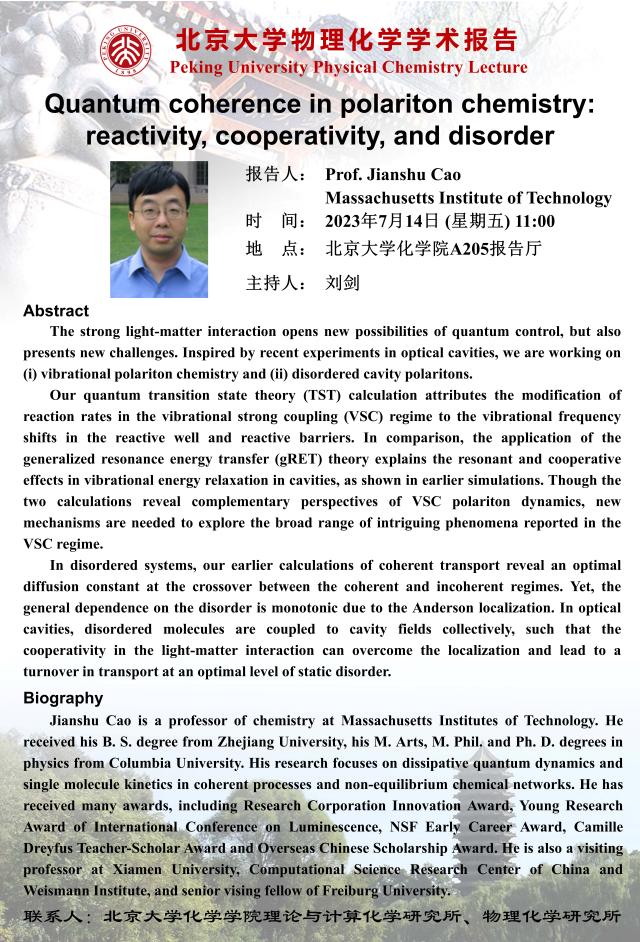Speaker: Prof. Jianshu Cao, Massachusetts Institute of Technology
Time: 11:00 a.m., July 14, 2023, GMT+8
Venue: College of Chemistry and Molecular Engineering, Room A205
Abstract:
The strong light-matter interaction opens new possibilities of quantum control, but alsopresents new challenges. Inspired by recent experiments in optical cavities, we are working on (i) vibrational polariton chemistry and (ii) disordered cavity polaritons.
Our quantum transition state theory (TST) calculation attributes the modification otreaction rates in the vibrational strong coupling (VSC) regime to the vibrational frequencshifts in the reactive well and reactive barriers. In comparison, the application of thgeneralized resonance energy transfer (gRET) theory explains the resonant and cooperative effects in vibrational energy relaxation in cavities, as shown in carlier simulations. Though the two calculations reveal complementary perspectives of VSC polariton dynamics. new mechanisms are needed to explore the broad range of intriguing phenomena reported in the VSC regime.
In disordered systems, our earlier calculations of coherent transport reveal an optimal diffusion constant at the crossover between the coherent and incoherent regimes. Yet, the general dependence on the disorder is monotonic due to the Anderson localization. In opticalcavities, disordered molecules are coupled to cavity fields collectively, such that thecooperativity in the light-matter interaction can overcome the localization and lead to aturnover in transport at an optimal level of static disorder.
Biography:
Jianshu Cao is a professor of chemistry at Massachusetts Institutes of Technology. He received his B. S. degree from Zhejiang University, his M. Arts, M. Phil. and Ph. D. degrees inphysics from Columbia University. His research focuses on dissipative quantum dynamics andsingle molecule kinetics in coherent processes and non-equilibrium chemical networks. He has received many awards, including Research Corporation Innovation Award, Young Research Award of International Conference on Luminescence, NSF Early Career Award, Camille Dreyfus Teacher-Scholar Award and Overseas Chinese Scholarship Award. He is also a visiting professor at Xiamen University, Computational Science Research Center of China and Weismann Institute, and senior vising fellow of Freiburg University.
Source: College of Chemistry and Molecular Engineering
